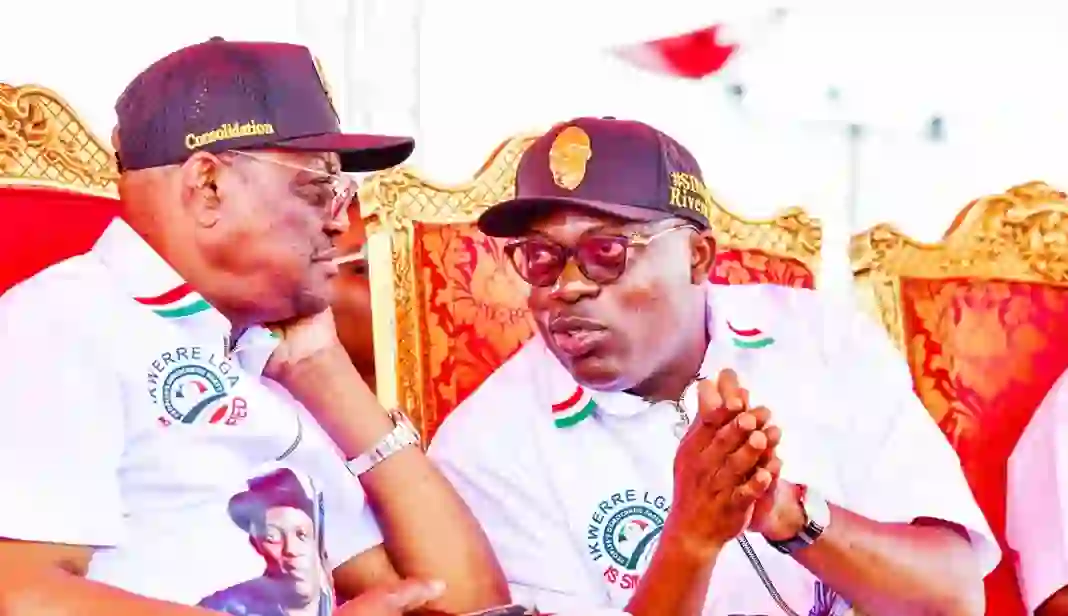The political crisis in Rivers State, culminating in Governor Sim Fubara’s resounding defeat at the Supreme Court, is a stark reminder of the unchecked absolutism that thrives in Nigeria’s political landscape. The court’s verdict, which sacked Fubara’s loyalists from local government positions and restored a hostile House of Assembly controlled by former Governor Nyesom Wike, has not only deepened the state’s crisis but also laid bare the brutal, zero-sum nature of politics in societies where institutions are weak and power is wielded arbitrarily. The Supreme Court has spoken, and the implications are clear: Fubara is cornered, and an impeachment move by the emboldened Assembly appears imminent. This saga is not just about two men fighting for supremacy; it is a reflection of the broader structural failings that make Nigerian politics a theater of perpetual conflict, where political actors, once ascendant, seek total dominance.
At the heart of this crisis is the classic struggle between a former political godfather and his rebellious protégé. Wike, unwilling to relinquish control, sought to maintain his grip on Rivers State’s political structure. Fubara, in defiance, charted his own course, attempting to consolidate his power by removing all vestiges of his predecessor’s influence. What followed was an unrestrained political war in which both men demonstrated an insatiable thirst for control, turning the state into a battlefield. In societies with strong democratic traditions, transitions of power are moderated by robust institutions that prevent such political excesses. But in a system where power operates with little to no checks, the contest for supremacy becomes a war of attrition—one in which governance takes a backseat to the endless pursuit of dominance.
Governor Fubara’s attempt to dismantle Wike’s influence was no less authoritarian than Wike’s attempt to maintain it. In his bid to consolidate power, Fubara installed his own loyalists as local government chairmen through a proxy party, sidelining due process and disregarding political plurality. He unilaterally reduced the House of Assembly to a rubber stamp legislature of just three loyalists while not awaiting the courts to decide on the legitimacy of the larger Assembly that opposed him. Rather than building consensus, he weaponized ethnic sentiment, mobilizing Ijaw nationalism to create a political base that would insulate him from broader public scrutiny. These tactics were not rooted in democratic principles but in a desperate bid to secure unchallenged control—mirroring the very methods he accused Wike of using against him.

This culture of absolutism thrives because the institutions that should moderate power struggles are weak, compromised, or outrightly non-functional. The Judiciary, though it has now asserted itself with a decisive ruling, is often a tool in the hands of political actors, delivering judgments that align with the prevailing power dynamics rather than serving as an independent arbiter. The legislature, which should be a counterweight to the executive, is easily co-opted at will, as seen in Fubara’s unilateral reduction of the House to three loyalists. The security agencies, rather than upholding the rule of law, often serve as enforcers for those in power. In such an environment, governance is reduced to personal rule, with state power being deployed for vendettas rather than service delivery.
A glaring example of this was Fubara’s use of state power to economically strangulate Wike’s loyalists. A former local government chairman, for instance, saw his hotel sealed and was slapped with over N100 million in taxes, rates, and operational costs—an unmistakable case of political retribution. This mirrors the political persecution Fubara himself suffered when Wike’s loyalists tried to render him powerless. In both cases, the message was clear: power is not a means to govern but a weapon to subdue opponents. Such arbitrary use of power does not only undermine democratic governance but also fosters instability, as political actors anticipate and prepare for the day when they, too, will become victims of the same ruthless tactics.
The Supreme Court’s decision to halt federal allocations to Rivers State further underscores the fragility of governance in the absence of strong institutions. While the judgment may be rationalized on the facts before the court, its political ramifications are enormous. It leaves Rivers State in a precarious financial position, punishing not just Fubara but the entire populace, who will bear the brunt of an administrative paralysis. This is yet another demonstration of how political conflicts in Nigeria often escalate to the point where governance becomes hostage to power struggles, with little regard for the ordinary citizens caught in the crossfire.
The broader implication of this crisis is that the exercise of power in Nigeria remains fundamentally despotic, despite the nickname of democracy in view of periodic elections. Elections are held, but political transitions are rarely smooth; power struggles are settled not through negotiations or institutional checks but through sheer political force: those in power seek absolute control, while those ousted fight to finish to regain it by any means necessary. The absence of moderation ensures that every transition of power is fraught with tension, instability, and a cycle of retributive governance.
Ultimately, the Fubara-Wike conflict is not unique; it is merely the latest manifestation of a deeply entrenched political culture where power is an all-or-nothing game. Until Nigeria builds institutions that can withstand the ambitions of individual politicians, these crises will continue to define governance.
The lesson from Rivers State is clear: in societies where power is unchecked, political actors will always prioritize personal survival over democratic principles, and the people will always be the collateral damage. In the coming days or weeks, the nagging perplexity, namely: “Is it over for Fubara?” would have been resolved.
The worst form of democracy is still better than the best form of military rule.
Opurozor, a prolific commentator on current issues writes from Owerri
Discover more from The Source
Subscribe to get the latest posts sent to your email.








